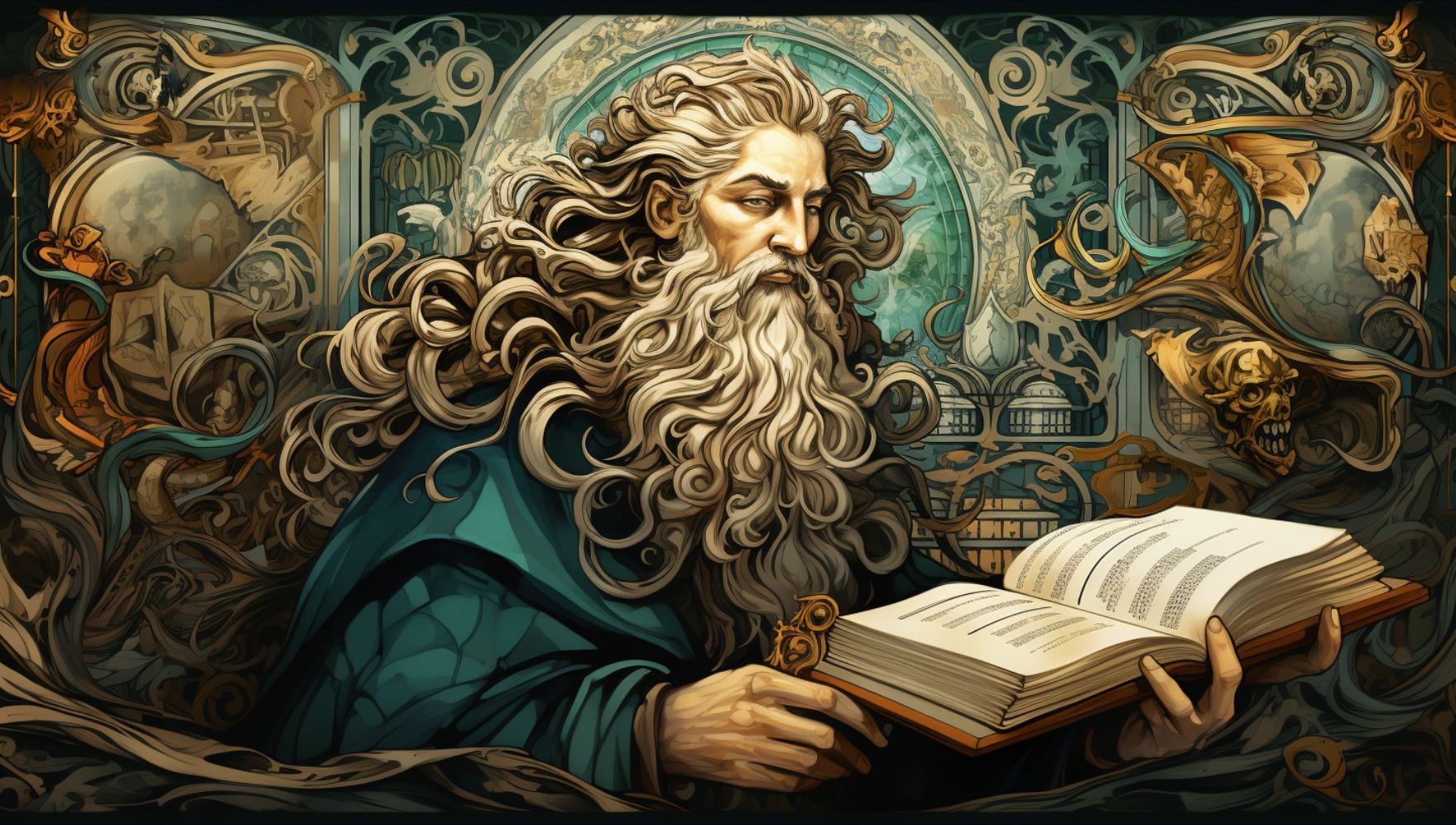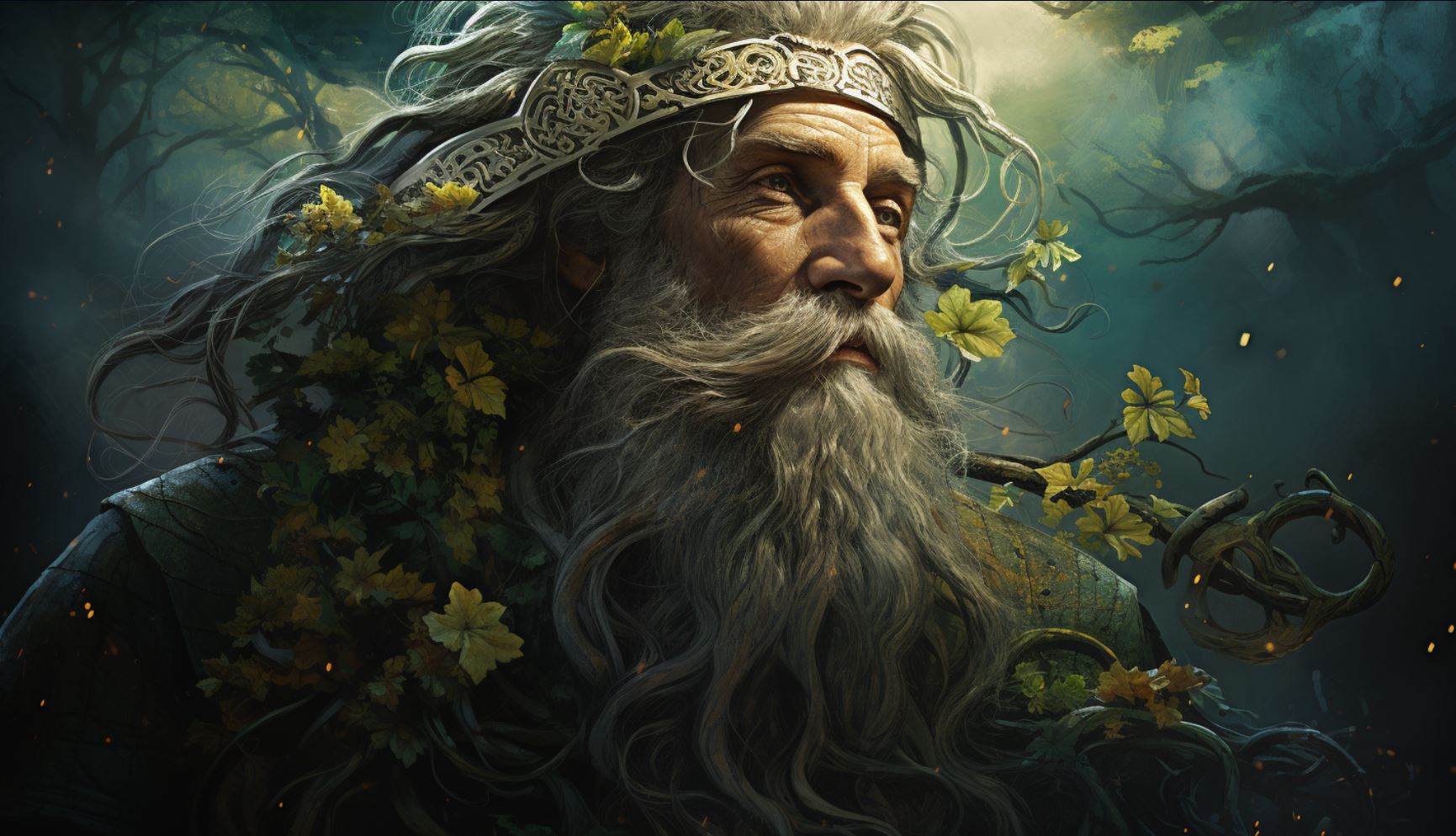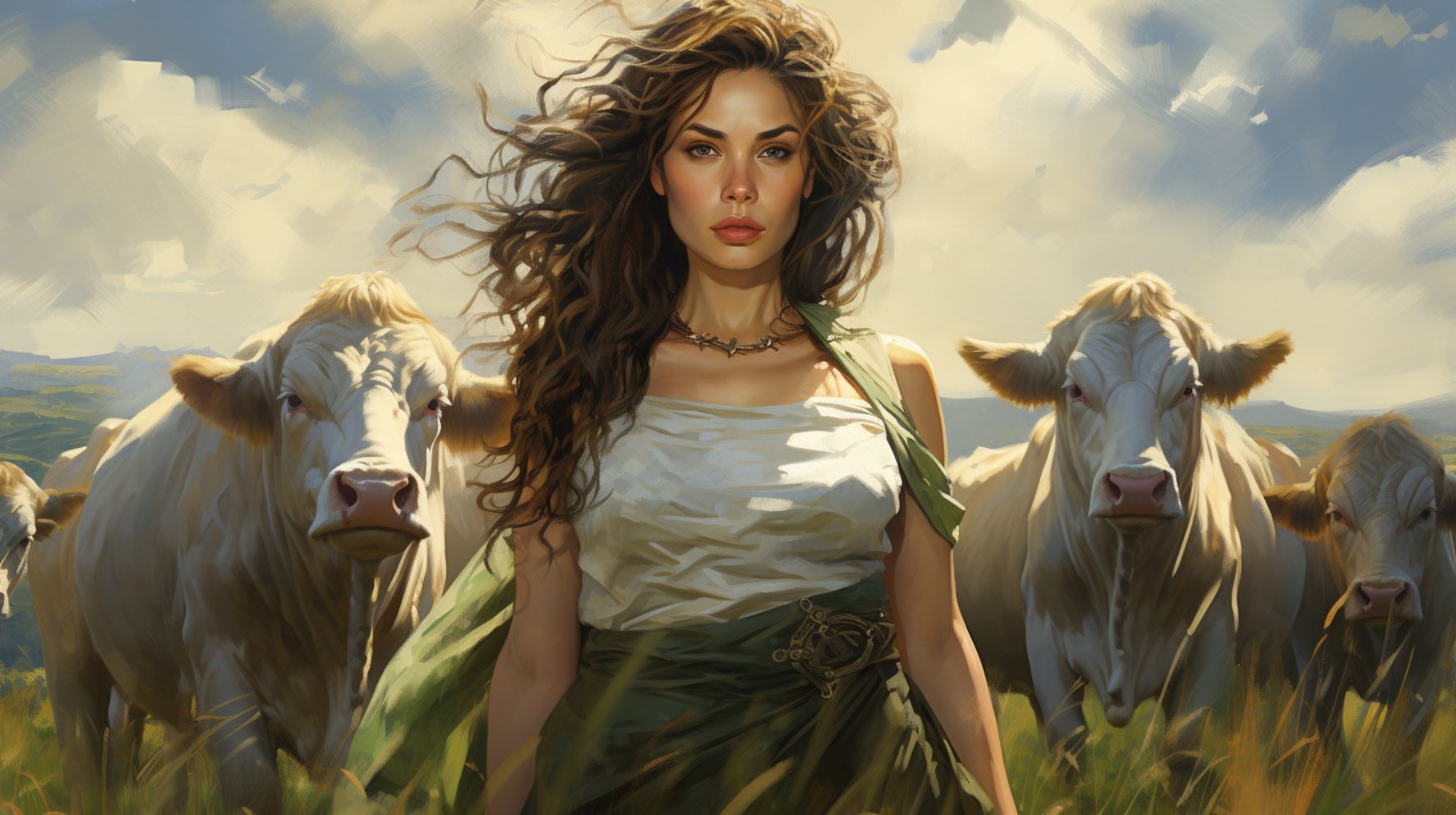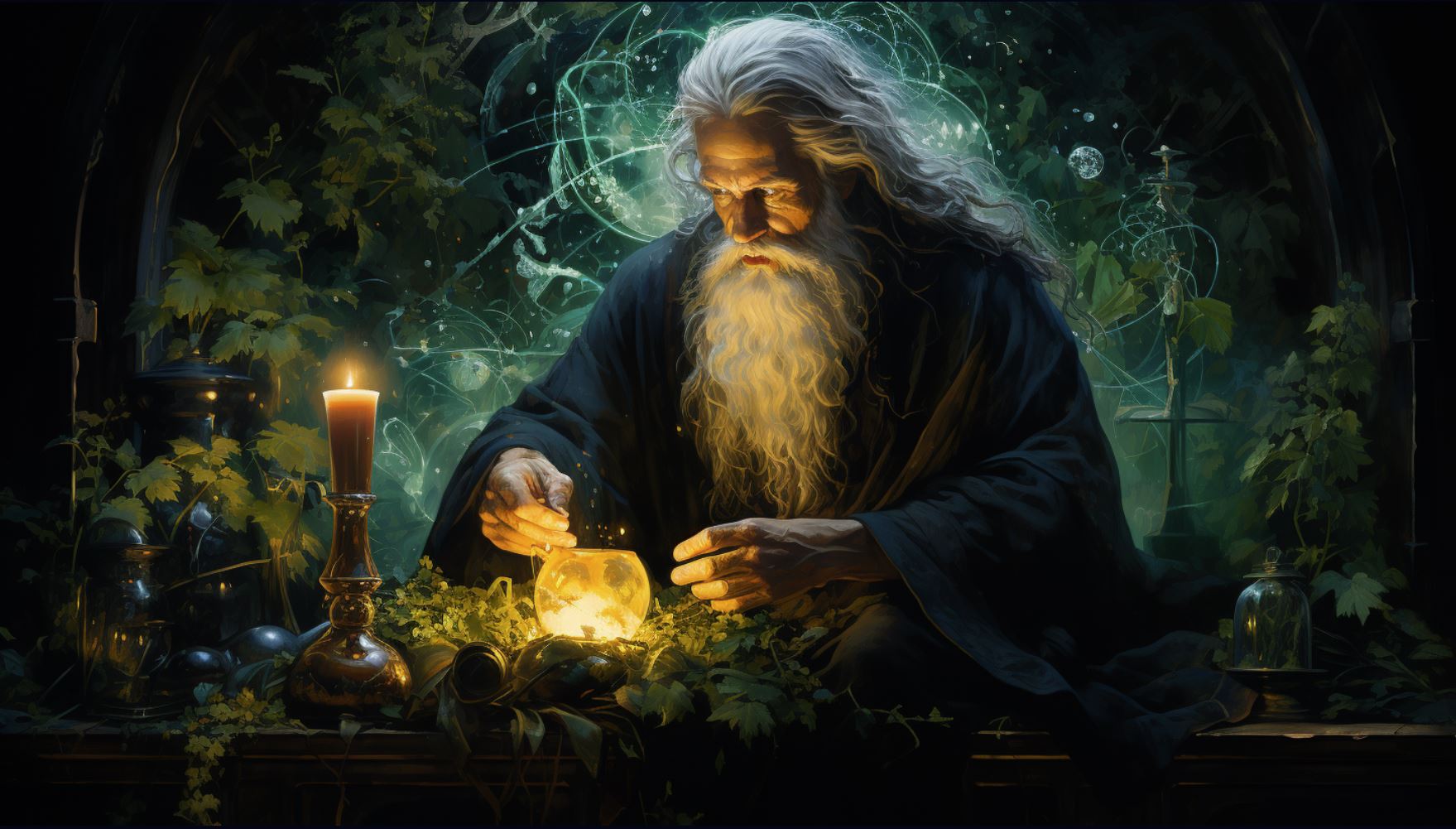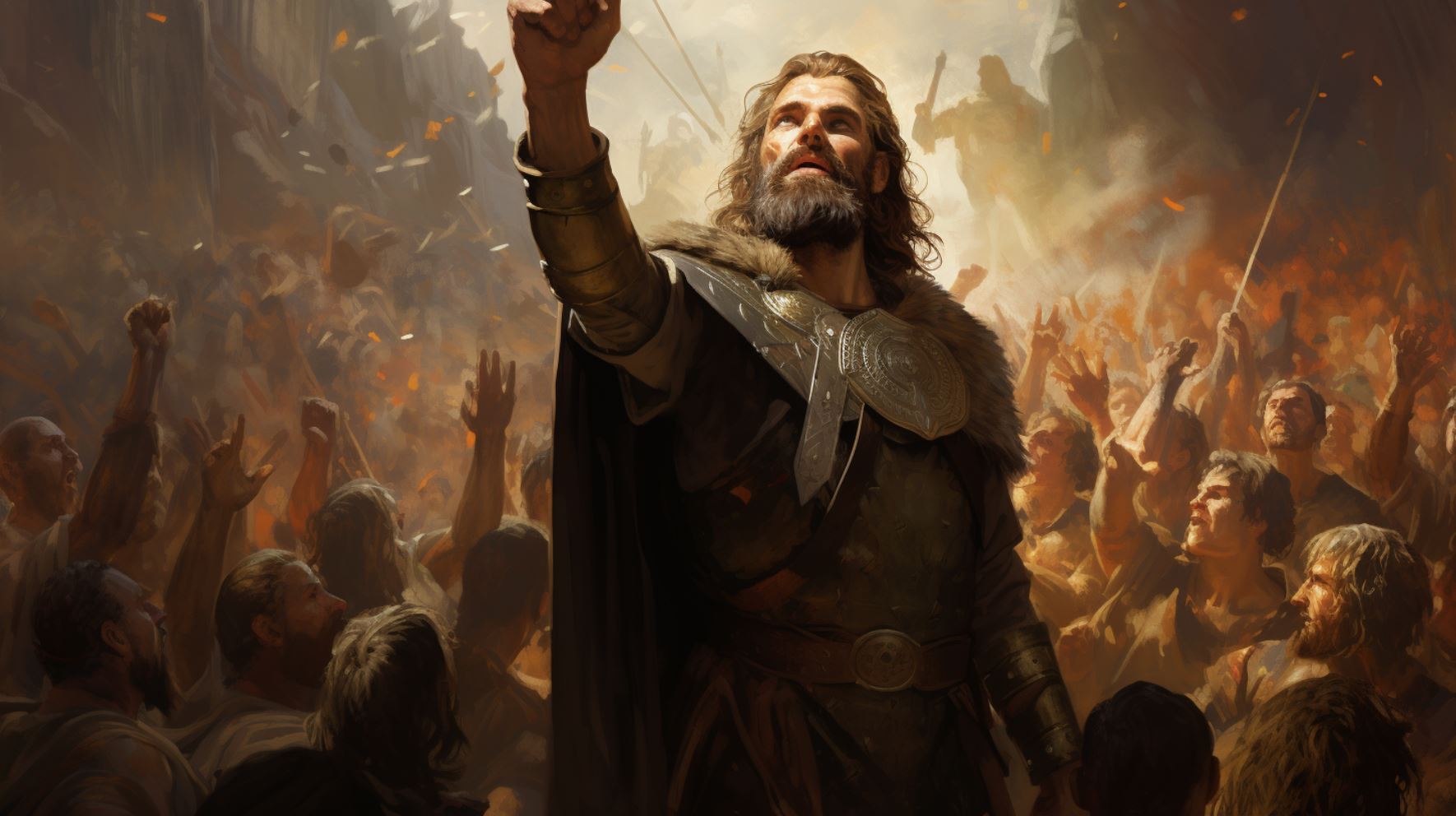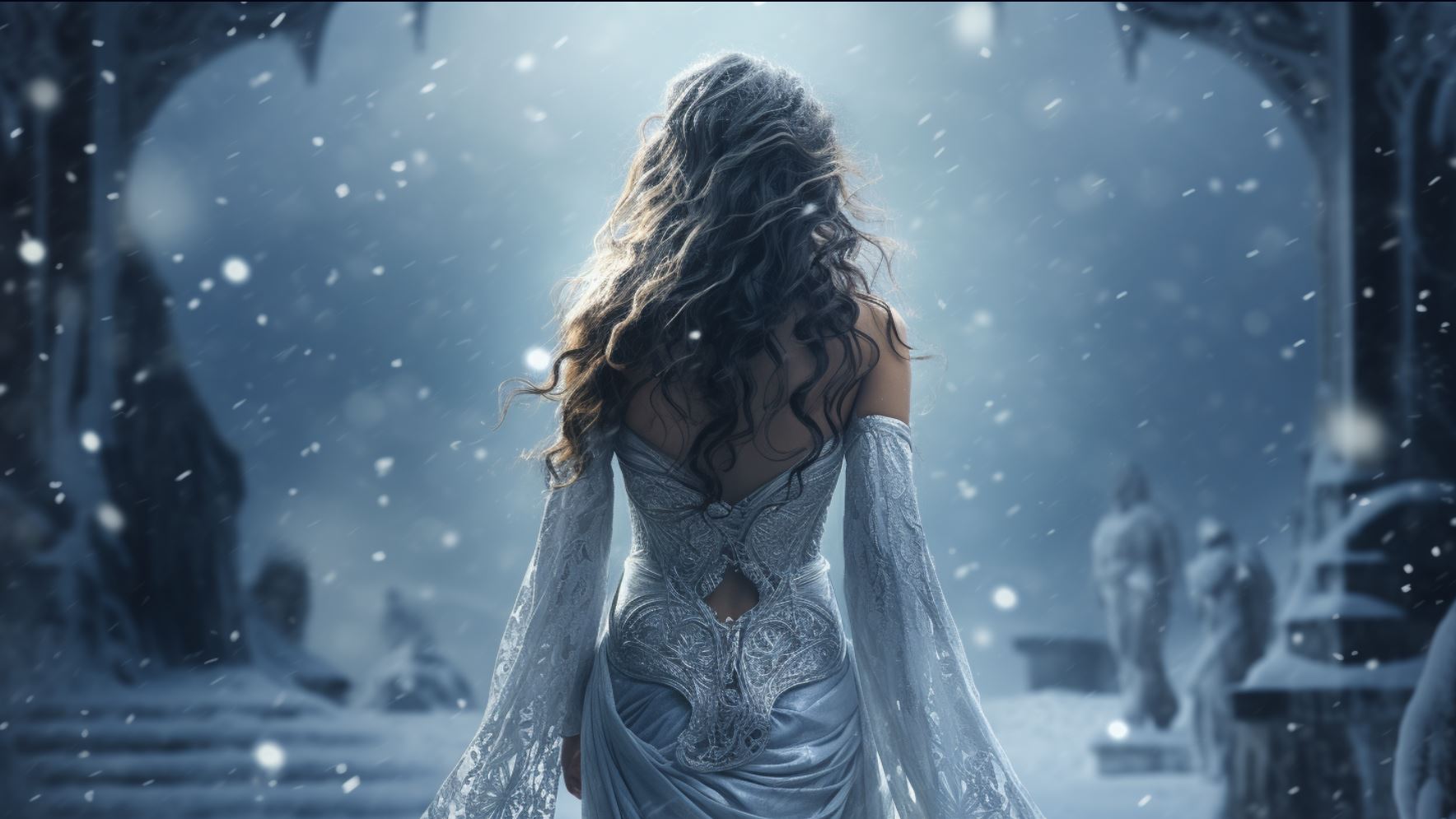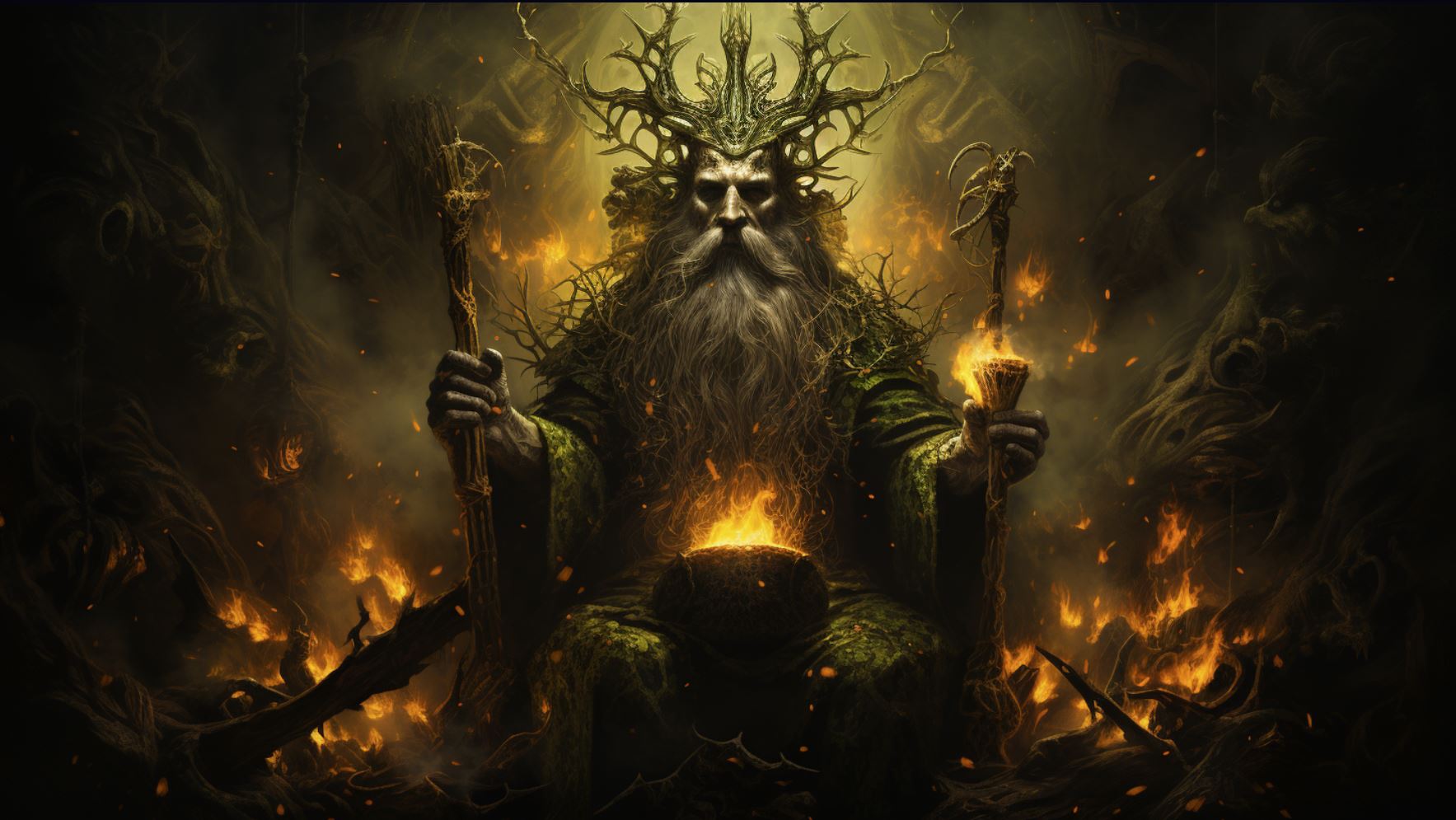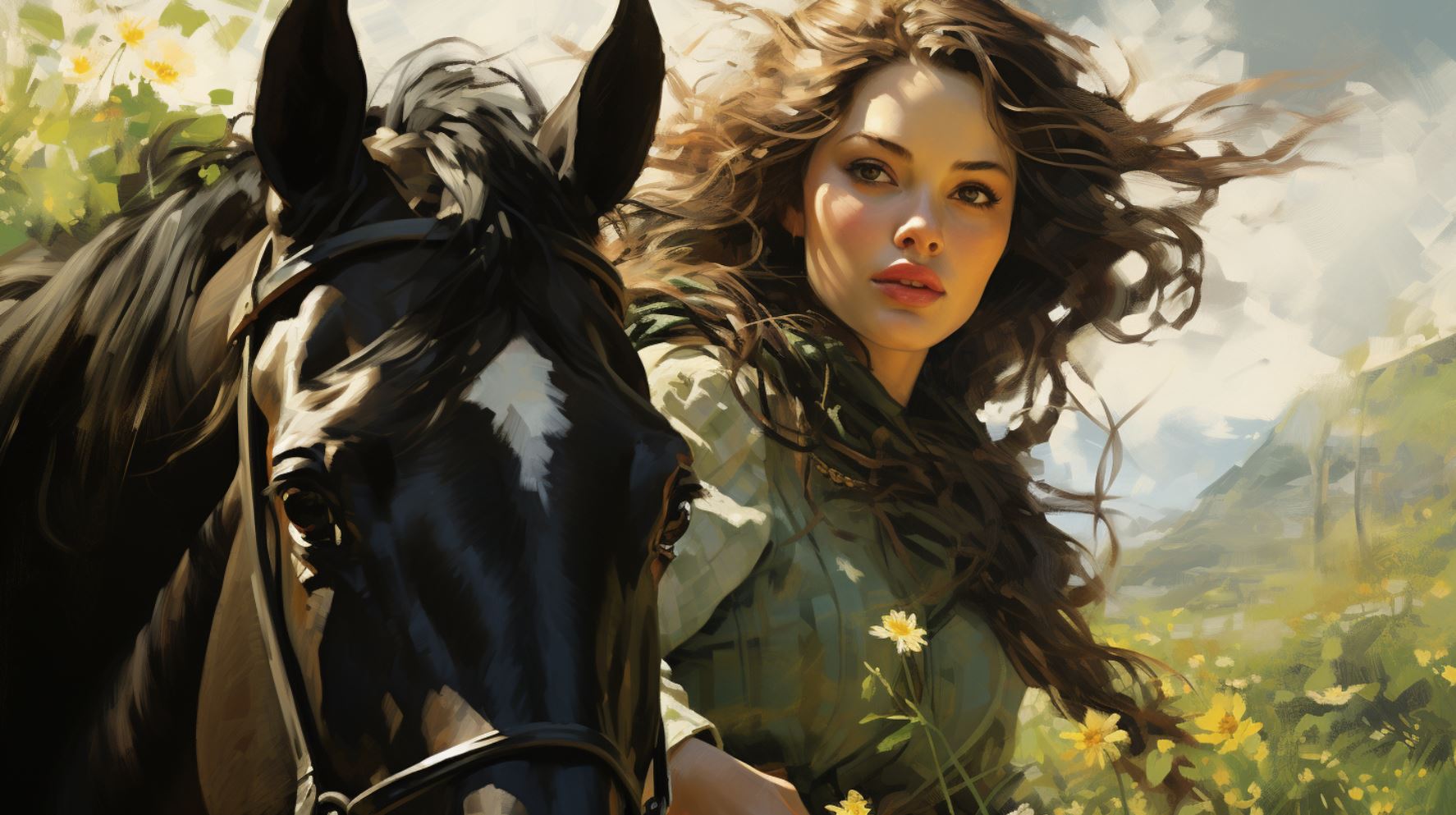Ogma Celtic God: Exploring the Ancient Irish Deity Linked to Literature and Eloquence
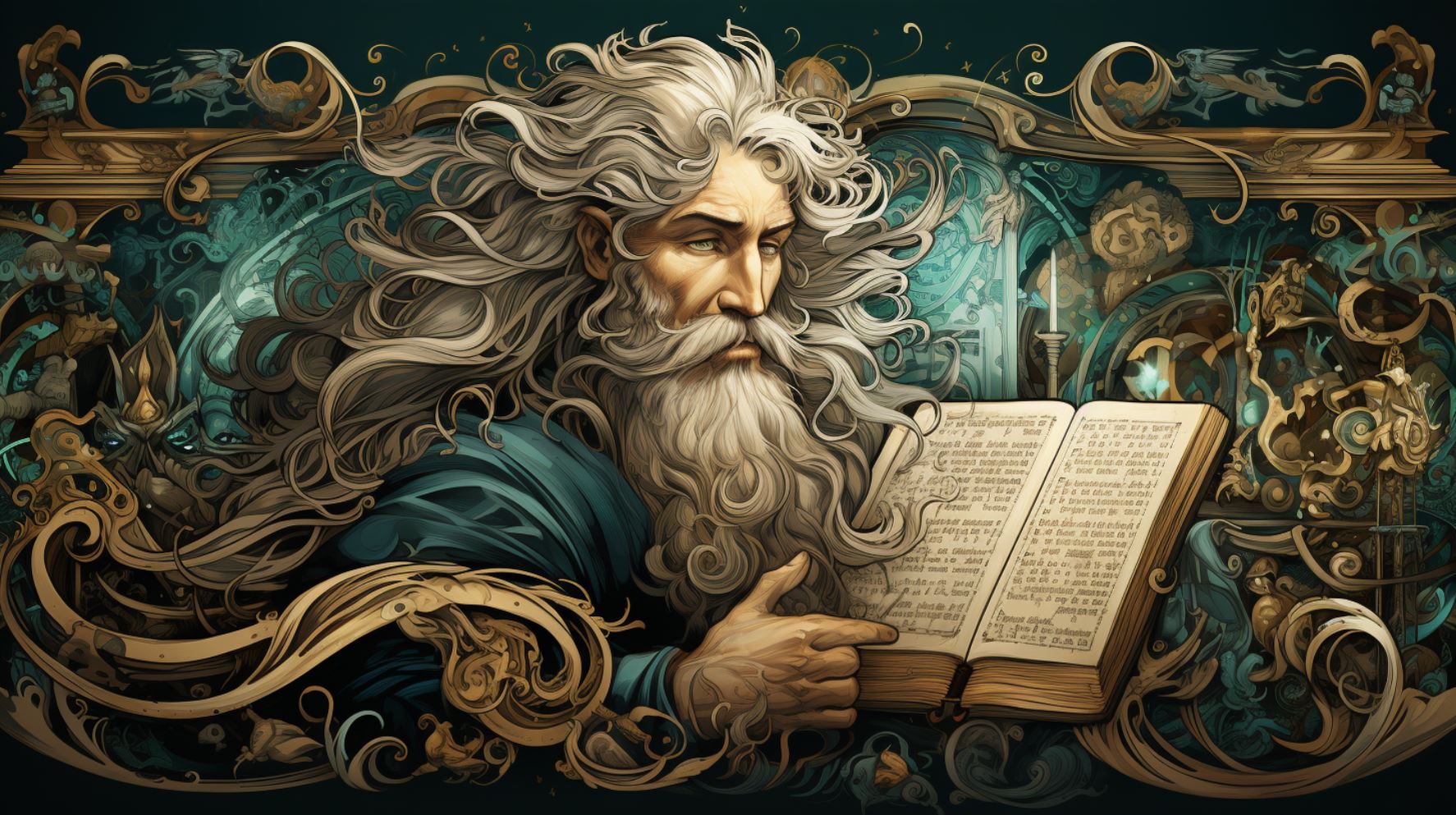
Ogma Celtic God is an ancient Irish deity associated with literature, eloquence, and intellect. He is attributed with inventing the Ogham script, a system of writing inscribed on stone and wood.
Ogma’s strength and skill made him the champion of the god Lugh and a prominent figure in the tribe of Tuatha Dé Danann. The Ogham alphabet, named after Ogma, served as a protective form and remains preserved on Irish stones today.
This article explores Ogma’s mythological origins, attributes, significance in Celtic culture, and comparisons to the Greek god Hermes.
Please note that the suggested introduction is concise and informative, as per the given guidelines.
The Mythological Origin of Ogma
Ogma, an ancient Irish deity of the Celtic mythology, holds a significant place in the tales of Irish folklore. This section explores the mythological origins of Ogma, shedding light on the stories that surround his name.
The Battle of Magh Tuiredh
One of the prominent events in Ogma’s mythology is the Battle of Magh Tuiredh, where he played an essential role. This battle marked a significant turning point in the conflict between the Tuatha Dé Danann tribe and the Fomorians.
Legends speak of Ogma’s valor and strength as he fought alongside other deities to defend their people.
Ogma’s Role as the Champion of Lugh
Following the Battle of Magh Tuiredh, Ogma’s abilities and bravery earned him the esteemed position of being the champion of Lugh, another powerful deity of the Celtic pantheon. As Lugh’s champion, Ogma showcased his martial skills and served as a loyal protector of their tribe.
To delve deeper into the fascinating mythology surrounding Ogma, it is essential to examine his attributes and domain. By understanding Ogma’s roles and capabilities, we can gain a better appreciation of his significance in Celtic culture and society.
Stay tuned for the next section!
Ogma’s Attributes and Domain
Ogma, the ancient Irish deity, possessed a range of remarkable attributes that earned him a significant role in Celtic mythology. His domain encompassed literature, eloquence, and physical strength, making him a revered figure among the Tuatha Dé Danann tribe.
The God of Literature and Eloquence
As the god of literature and eloquence, Ogma held a prominent place in Celtic culture. He was revered as the patron of poets, scholars, and orators, bestowing upon them the gift of articulation and mastery of language.
The Inventor of Ogham Script
Ogma’s notable accomplishments extended to the creation of the Ogham script. Regarded as the ancient Irish alphabet, the Ogham was inscribed on stone and wood using notches and lines. This system of writing revolutionized communication and became a sacred and essential part of Celtic culture.
Ogma’s Strength and Skill
Alongside his intellectual prowess, Ogma was renowned for his exceptional physical strength and skill in battle. Within the Tuatha Dé Danann tribe, he held the esteemed title of the strongest warrior, feared and respected by his adversaries.
Ogma Celtic God’s remarkable attributes, from his association with literature and eloquence to his invention of the Ogham script and formidable strength, contributed to his lasting impact in Celtic mythology and his revered status among the Tuatha Dé Danann tribe.
Ogham: The Ancient Irish Alphabet
Ogham, an ancient Irish alphabet, holds great significance in Celtic culture. This section explores the origins, purpose, and preservation of Ogham, shedding light on its role as a form of written communication in ancient Ireland.
The Origins and Purpose of Ogham
The origins of Ogham can be traced back to Ogma, the Celtic god of literature and eloquence. This script was developed as a means of preserving knowledge and communication. Ogham consists of a series of horizontal or vertical lines, known as notches, representing various sounds or letters.
It was primarily inscribed on standing stones or wooden pillars, serving as a visual representation of language.
Ogham’s Use as a Form of Protection
One fascinating aspect of Ogham is its association with protection and magical properties. The inscriptions were believed to possess mystical qualities, acting as a shield against harm and offering spiritual defense.
Ogham was often utilized in talismans, amulets, and personal charms, creating a connection between the ancient script and the concept of warding off negative energies or influences.
Preservation of Ogham in Modern Ireland
Despite the passage of time, Ogham continues to hold significance in modern Ireland.
Numerous Ogham inscriptions can still be found on stones throughout the country, providing a tangible link to the past. These inscriptions not only contribute to our understanding of ancient Irish culture and language but also serve as a testament to the enduring power and value of this unique script.
Ogma in Celtic Culture and Society
Ogma, the ancient Irish god, played a significant role in the culture and society of the Celtic people. Within the Tuatha Dé Danann tribe, Ogma held a position of great importance and reverence, as demonstrated by his various attributes and associations.
Ogma in the Tuatha Dé Danann Tribe
Ogma was highly esteemed among the Tuatha Dé Danann tribe for his exceptional strength and skill. He was considered the most powerful warrior in the tribe, known for his prowess in battle.
As the champion of the god Lugh, Ogma fought alongside him in the legendary Battle of Magh Tuiredh, displaying his bravery and valor.
Ogma’s Significance in Irish Mythology
In Irish mythology, Ogma represented not only physical prowess but also intellectual prowess. His association with literature and eloquence made him a patron deity of poets, scholars, and orators. Ogma’s contribution to the development of written communication through the invention of Ogham script further solidified his importance in Irish mythology.
Cultural Significance of Ogma’s Literature and Language
The literature and language associated with Ogma held a profound cultural significance in Celtic society. The Ogham alphabet, attributed to Ogma, served not only as a form of written communication but also as a means of protection.
This script was inscribed on stones and wood, preserving important messages and symbols for generations to come. Even today, the Ogham script can be found on ancient Irish stones, representing a connection to the rich cultural heritage of the Celts.
The language and literary traditions associated with Ogma played a crucial role in passing down stories, myths, and historical accounts. The poets and storytellers of ancient Celtic civilization relied on Ogma’s influence to convey their words with eloquence and precision.
Overall, Ogma’s presence in Celtic culture and society was felt through his association with the elite warrior class, his patronage of literature and language, and his invention of the Ogham script.
His contributions left an indelible mark on Celtic mythology and continue to be celebrated as a crucial part of Ireland’s cultural heritage.
Ogma Celtic God in Comparative Mythology
In the realm of comparative mythology, it is fascinating to draw parallels between Ogma, the Celtic god of literature and eloquence, and the Greek god Hermes. Although originating from different mythological traditions, these deities share several similarities in their roles and attributes.
Parallels Between Ogma and the Greek God Hermes
One prominent parallel between Ogma and Hermes lies in their association with communication and language. Just as Ogma is revered as the god of eloquence and literature in Celtic mythology, Hermes holds a similar domain in Greek mythology.
Both gods are patrons of language, offering their respective cultures the gift of artistic expression and intellectual communication.
Furthermore, Ogma and Hermes exhibit analogous attributes as messengers of the gods. Ogma is described as a champion and advocate for the Tuatha Dé Danann tribe, while Hermes serves as the messenger of the Greek Olympian gods.
Their roles as intermediaries between the divine realm and mortal beings emphasize their significance in facilitating communication and transmitting knowledge.
The divine aspect of Ogma’s and Hermes’ respective roles is also noteworthy.
Both deities possess extraordinary intellect and are revered for their cunning and cleverness. Ogma’s association with literature and literacy aligns with Hermes’ role as the god of invention, creativity, and knowledge.
Similarities and Differences in their Roles and Attributes
While Ogma and Hermes share many common traits, there are distinct differences in their roles and attributes. Ogma’s reputation as the strongest warrior among the Tuatha Dé Danann sets him apart from Hermes, whose strengths lie more in agility and craftiness.
Ogma’s physical prowess amplifies his significance among the Celtic deities and highlights his multifaceted nature.
Moreover, though both gods are associated with language, their specific areas of influence differ. Ogma’s domain centers around the art of storytelling, poetry, and the creation of the Ogham script, which carries his name.
Hermes, on the other hand, encompasses a wider range of linguistic activities, including persuasive speech, translation, and interpretation.
While Ogma and Hermes belong to distinct mythological traditions, the parallels in their roles, attributes, and domain of influence highlight the universal importance of communication, intelligence, and the power of language in human civilizations.
.

